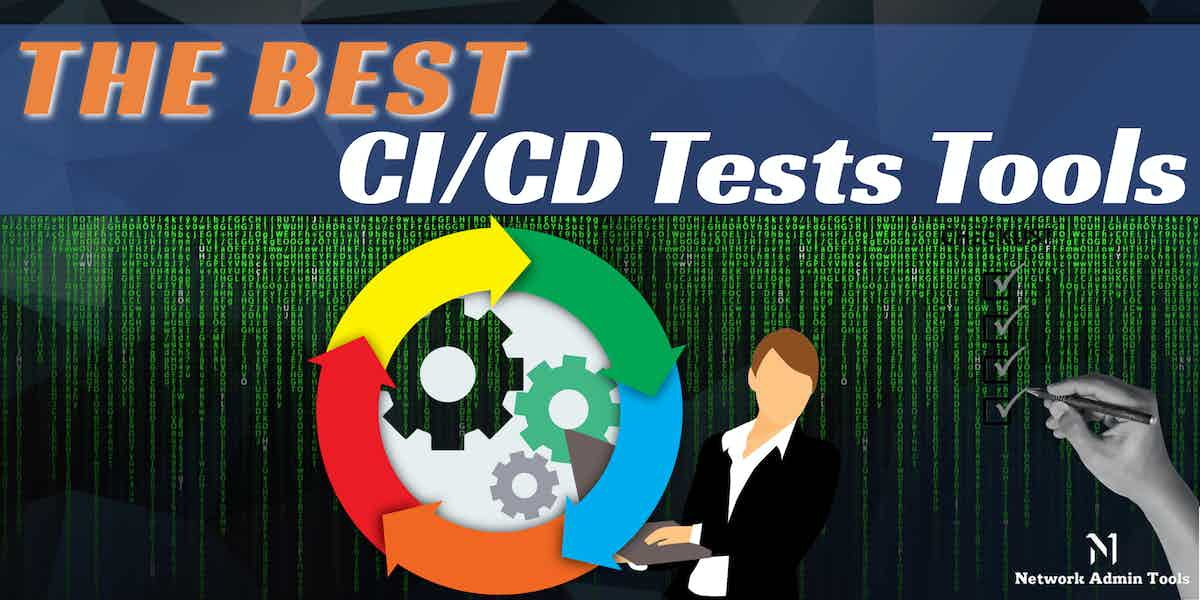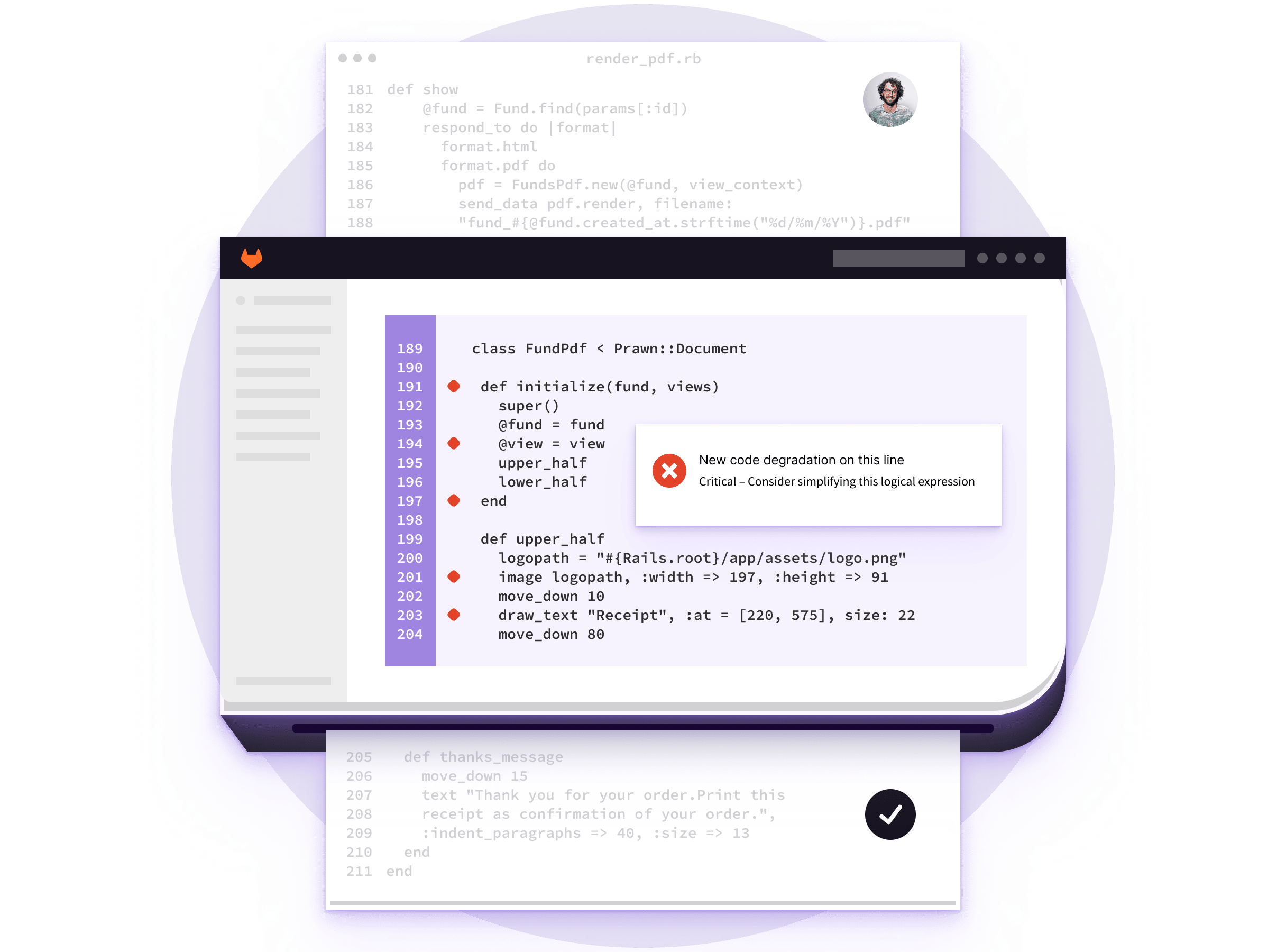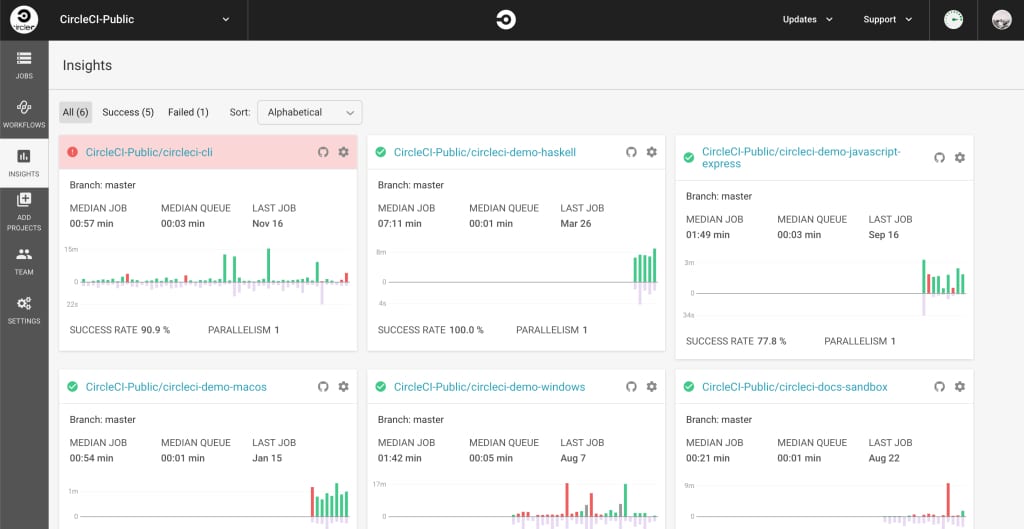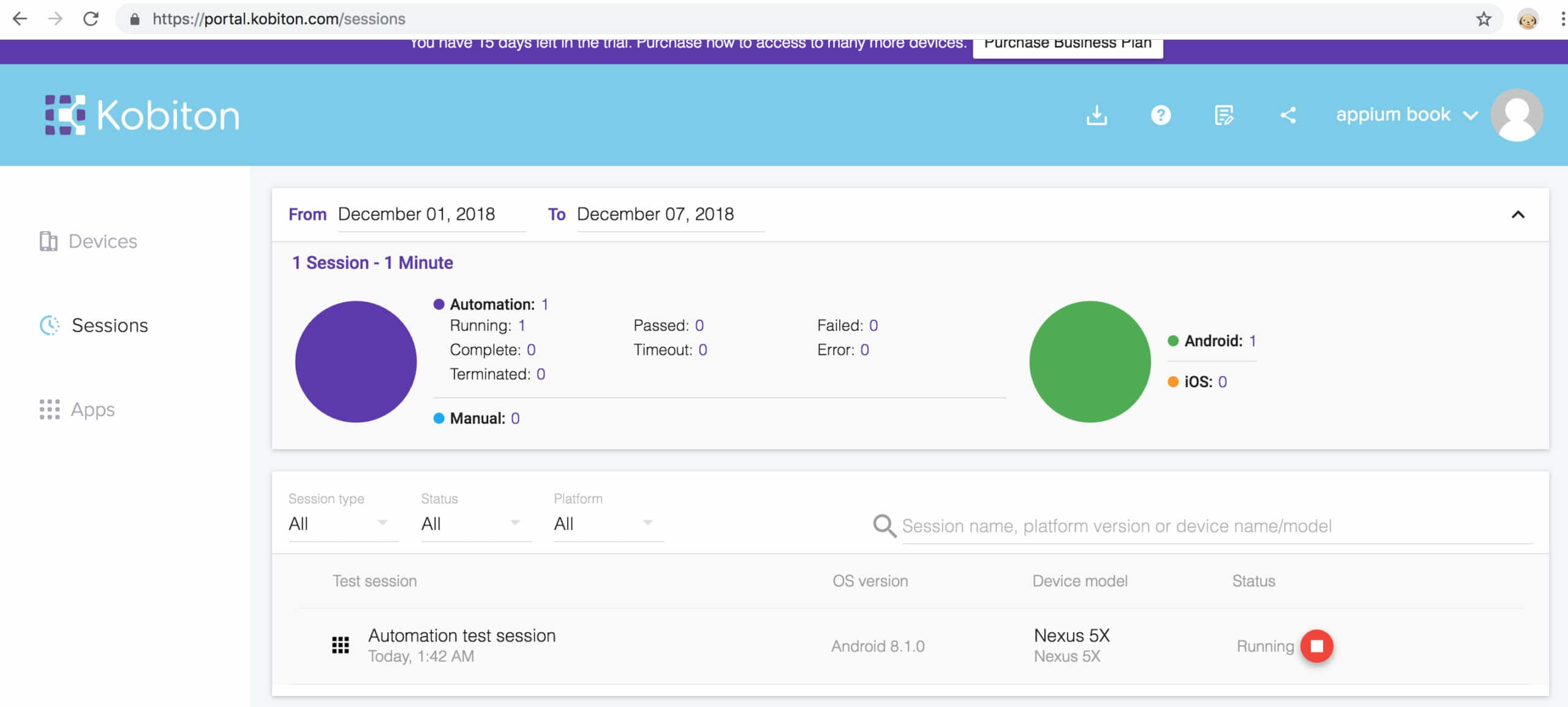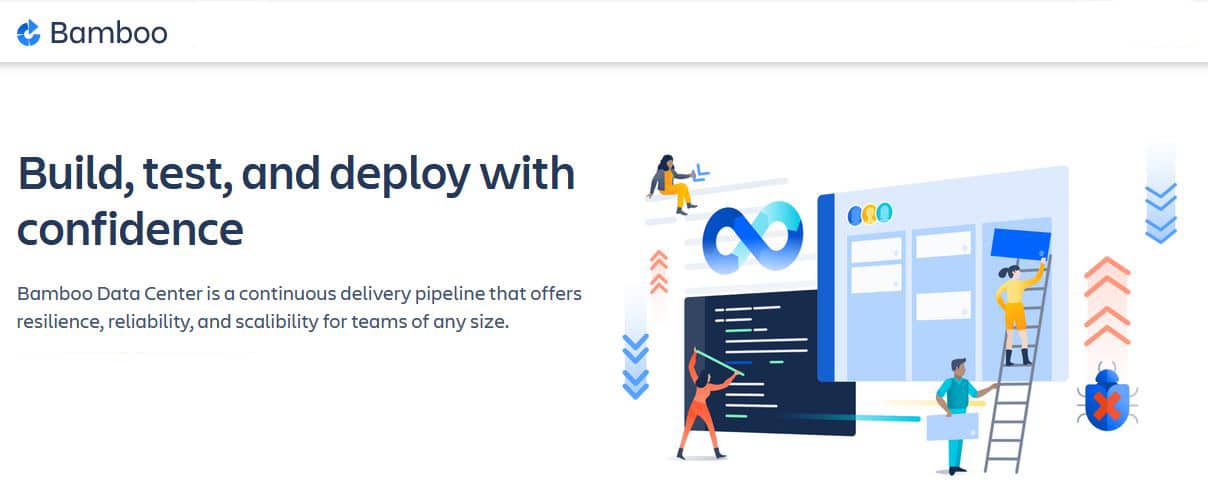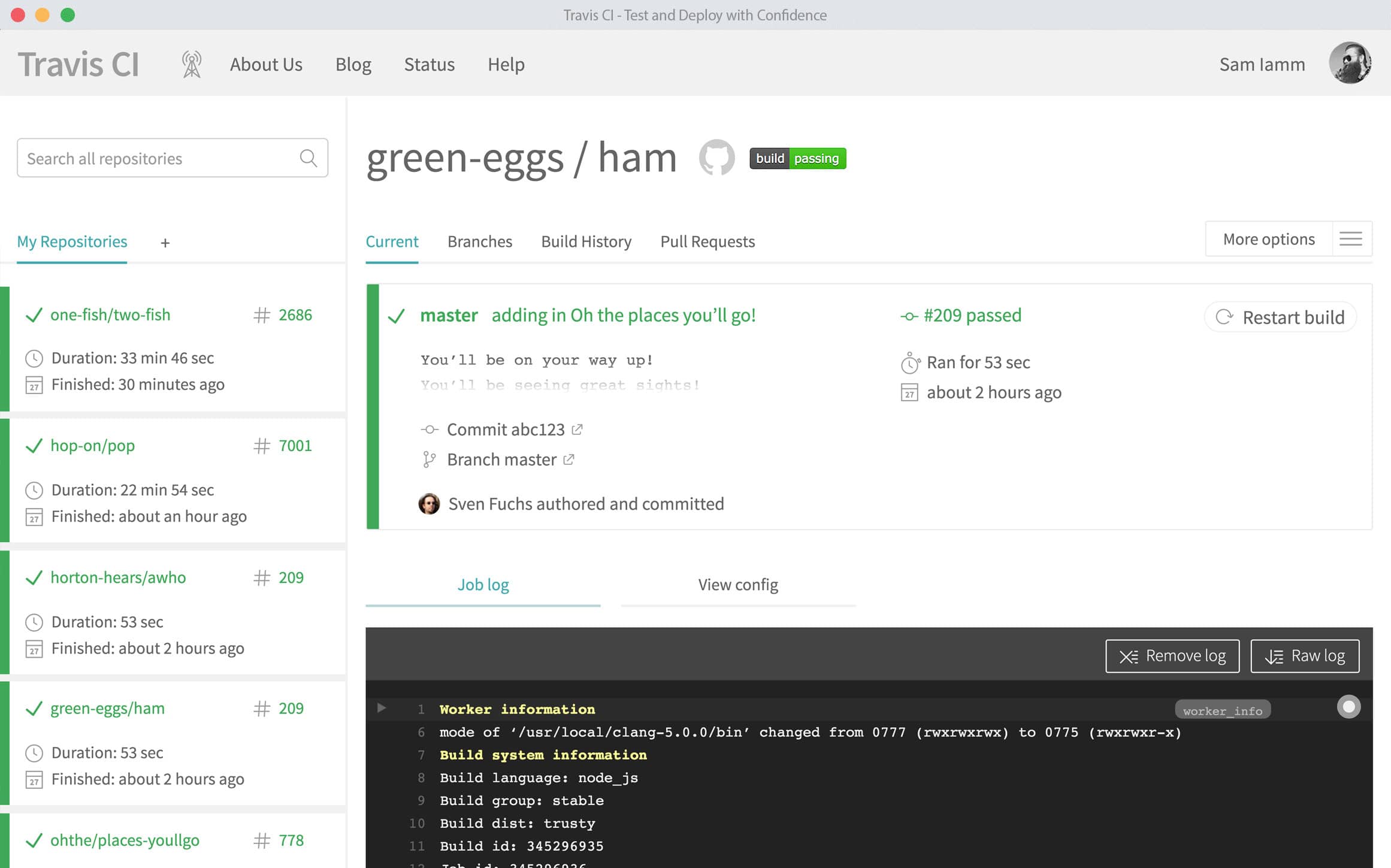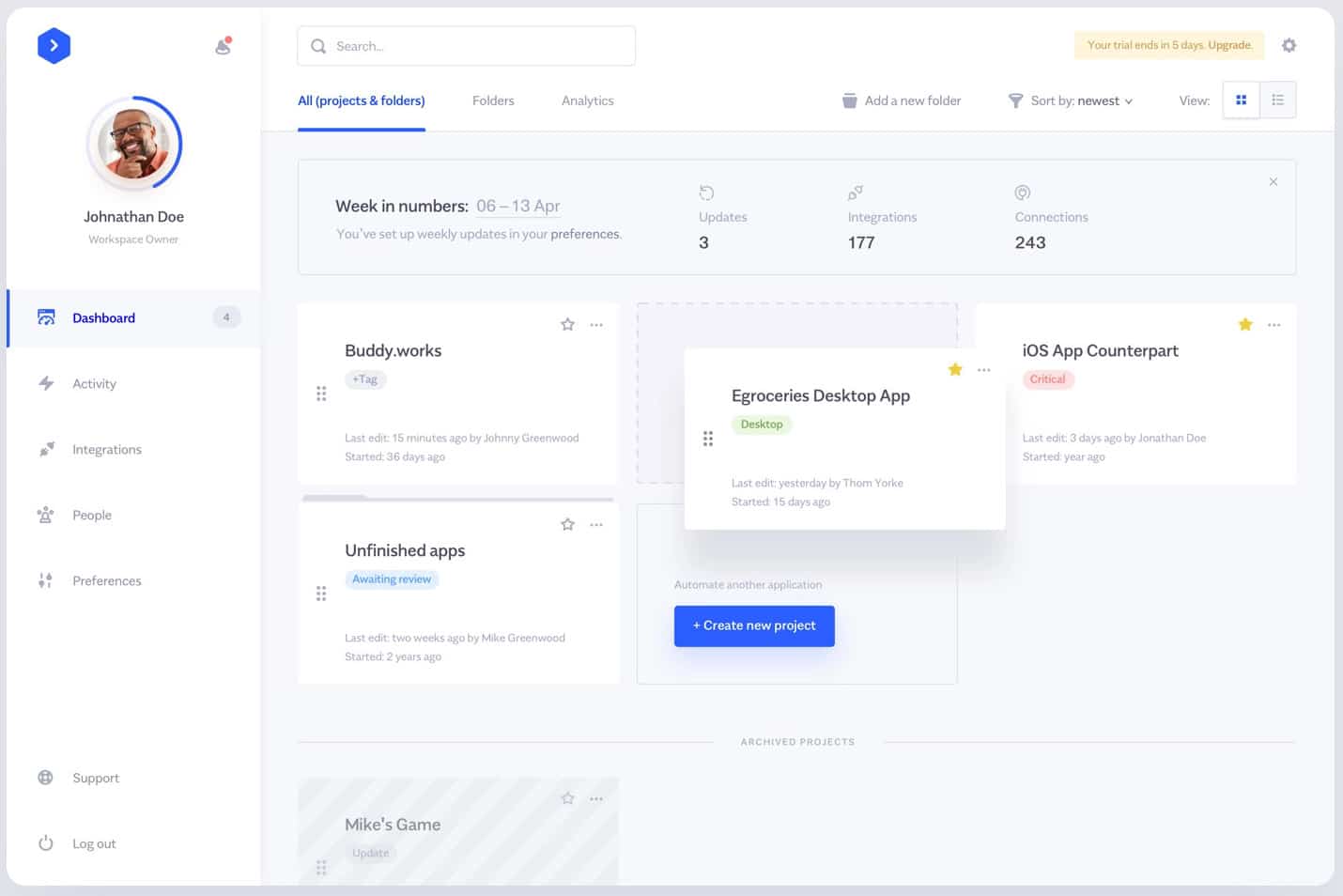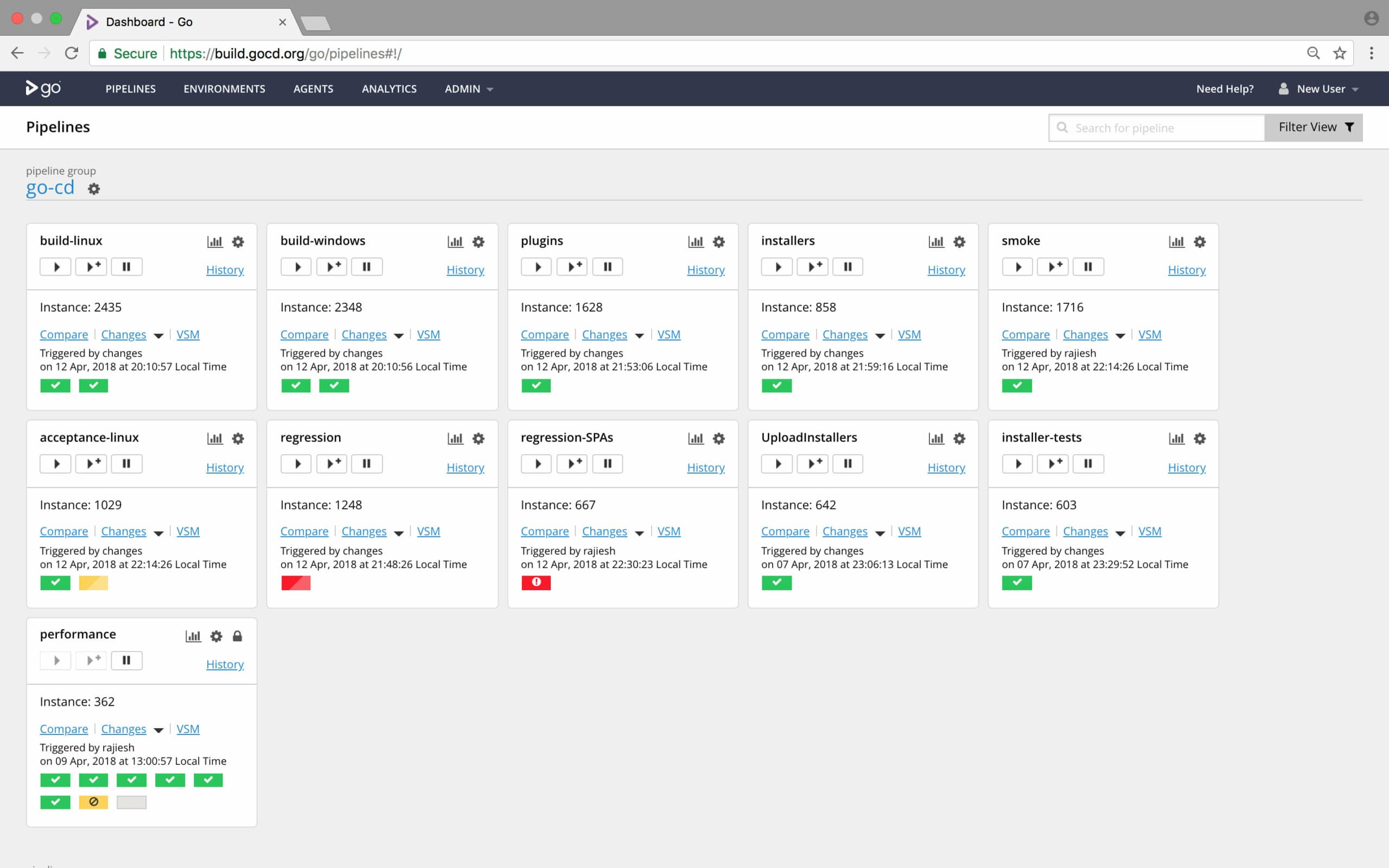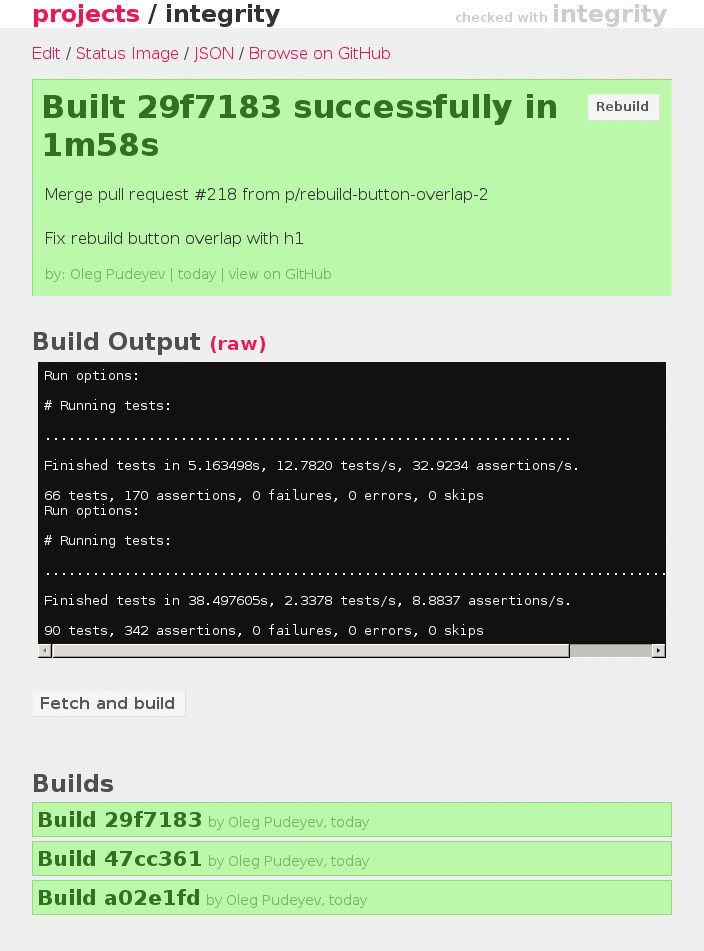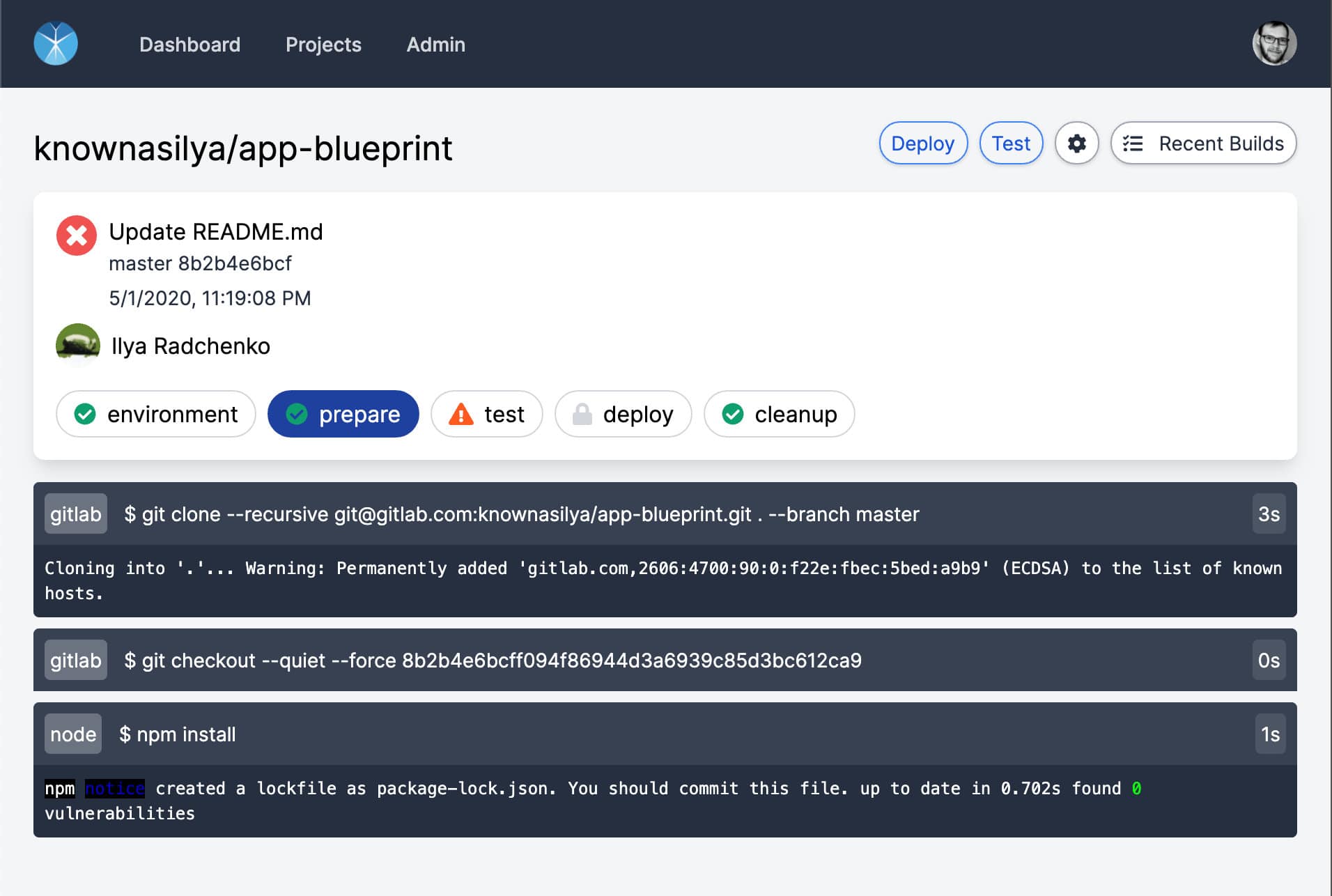CI/CD tools have become an integral part of software development and are demanded most by DevOps for testing applications. They comprise some of the best features that enable developers to deploy codes continuously.
Today, DevOps are looking for tools that can write code, verify, upload in the cloud, run tests, and monitor performance at all times while maintaining security. To make it easier for you, we have shortlisted some of the best tools in the market that will ease the process of running CI/CD tests and deliver the best results.
Most of the shortlisted tools help in tracking issues at an early stage and save from integration problems. Follow the blog to learn about some key factors one must keep in mind when selecting CI/CD tools for testing. Also, check and compare the shared tools.
Here is our list of the Best Tools to Run CI/CD Tests:
- GitLab One of the most widely used DevOps platforms that allow teams to develop, secure, and operate software in a single application. It helps trace issues throughout the development cycle.
- CircleCI Another DevOps tool to perform continuous integration and delivery tests. It is a scalable and cloud-based tool that helps to run different tests easily using built-in plugins.
- Kobiton A powerful and highly responsive automation tool that allows developers to run manual tests on multiple real devices in the cloud.
- Bamboo A continuous integration and continuous deployment server that ties automated builds, tests, and releases together in a single workflow. It is easy to set up and available as hosted or on-premises versions.
- Travis An enterprise-level CI CI/CD pipeline tool that offers more privacy and secured solutions compared to other tools and supports multiple programming languages, such as Python, Julia, Java, C#, etc.
- Jenkins It is an open-source CI/CD tool that tracks repeated tasks and fixes issues at the initial stage. It is based on Java and supports 1500+ plugins.
- Buddy A self-hosted CI/CD tool that allows developers to build, deploy, and test applications. Its pipelines support 100+ ready-to-use actions, SSL Checker, Docker containers, 100+ built-in actions, and more.
- GoCD A free and open-source tool designed to visualize complex workflows and build CD pipelines. It also streamlines CD workflow on Cloud providers, including Docker and AWS.
- Integrity Another popular continuous integration server is used to run tests on your code. It is simple, easy to use, and provides reports and notifications via email.
- Strider CD A Node.JS and JavaScript-based CI/CD platform to simultaneously build and test software projects. It can be integrated with other popular platforms such as BitBucket, Gitlab, GitHub, etc.
Methodology for selecting CI/CD Tests Tools
In the past, it was common for teams to manually test their software with a variety of inputs. It is a time-consuming process that requires significant human effort. But now, there are CI/CD test tools that can do this for you automatically and more efficiently.
CI/CD Test Tools help in automating the testing process in order to reduce the manual effort required by a team and also provide feedback on how well an application works under different conditions and scenarios. Here are a few factors one must consider when selecting CI/CD Tests Tools online.
- During the entire lifecycle of software development, does the chosen tool ensures proper security and compliance?
- Does it offer support to only a single solution?
- Does it offer real-time reporting features and integration with other cloud providers?
- Does it support both on-premises and cloud-based options?
- Is it compatible with multiple sets of plugins?
The Best Tools to Easily Run CI/CD Tests
At present, there are so many CI/CD tools available online that make the process of running CI/CD tests easy and simple. We have shortlisted some of the top tools that might range with your budget and fulfill project requirements. Have a look at some of the best CI/CD tools.
What should you look for in CI/CD Tests tools?
Building an effective CI/CD pipeline is not as easy as it sounds. You need to make countless decisions, make better plans, and work together to deliver the best results. As the CI/CD workflows are susceptible to security concerns, we recommend investing in tools that help maintain security and compliance throughout the software development lifecycle.
Before purchasing a tool, make sure to check it meets varied needs and does not support only a single solution. Check whether the selected tool provides real-time reporting features, runs proper tests, and supports integration. Further, it is vital to check if the selected tool provides on-premises and cloud-based options. Also, whether it integrates with different cloud providers.
Another thing you must make a note of is to make sure to check if a CI/CD tool supports multiple sets of plugins or not, as they provide greater functionality.
Every CI/CD tool does not have built-in plugins, but we have selected a few that comprise various plugins and advanced features. Check out some of the below-listed tools and their features before making a final decision.
1. GitLab
GitLab is one of the most popular DevOps platforms that provide full visibility and quality insights into business processes. It is an all-in-one tool that improves the cycle time from weeks to minutes and enables developers to deliver a secure application.
Key Features
- Portfolio Management
- Quality Management
- Team planning
- Service Desk
- Restricts access
- Group support and management
- Supports LDAP/AD integration
- Agile development
- Issue tracking
Why do we recommend it?
We recommend GitLab for its comprehensive set of DevOps features, from portfolio management to quality insights, that streamline the entire development cycle. Its security features and seamless integration capabilities make it stand out as one of the best in the category.
It eases the process and enables teams to organize, plan, align, track projects and maintain end-to-end visibility. GitLab is one of the best tools with various advanced features. It helps trace issues throughout the development cycle.
Further, the tool supports a credential management system that adds more security and streamlined access to the environment. Users can easily track and analyze all the modifications made by audit systems.
Who is it recommended for?
GitLab is ideal for development teams and businesses looking for an all-in-one DevOps solution. Its advanced features and security protocols make it suitable for enterprises needing to manage large-scale projects and maintain compliance.
Pros:
- Generates extensive reports
- Easy to migrate
- Supports user authentication options
- Allows users to easily handle GitLab instances using LDAP/AD integration
- Offers granular control
- Supports integration with third-party systems
Cons:
- No cons found yet in GitLab
GitLab offers three pricing plans:
- Free – Ideal for individual users
- Premium – $19/user/month
- Ultimate – $99/user/month
2. CircleCI
CircleCI is another best tool for running continuous integration and delivery tests. The tool was founded in 2011 and is used to test, deploy, and speed up builds. It is easy to install and requires no dedicated server for maintenance.
Key Features
- Supports quick setup and installation
- Automated parallelism
- Allows caching all third-party configurations
- Supports Secure Shells (SSH)
- Uses docker layer and advanced caching to run highly complicated pipelines effectively
- Supports quick application deployments
Why do we recommend it?
We recommend CircleCI for its ease of setup and robust capabilities in continuous integration and delivery. The tool eliminates the need for a dedicated server, making it cost-effective and efficient for testing and deploying code.
Also, CircleCI is one of the scalable and robust cloud-hosted continuous integration and delivery platforms. Developers find it easy to run tests and several tasks on Linux, OSX, and containers using its built-in plugins.
Another aspect of CircleCI that makes it a top choice is support for different languages. It is popular among GitHub and BitBucket projects and used by developers to debug build issues using Secure Shells (SSH).
Who is it recommended for?
CircleCI is recommended for developers and DevOps teams who work on GitHub and BitBucket projects. Its quick setup, support for multiple languages, and cloud-hosted scalability make it an excellent choice for both small startups and larger enterprises.
Pros:
- No dedicated server is needed to operate CircleCI
- CircleCI eliminates redundancy and saves time on maintenance
- Easy to build, test, debug and deploy with CircleCI
- It comprises various built-in plugins that reduce operation overhead costs
- Uses SSH to share all stored encrypted variables
Cons:
- CircleCI is available for GitHub or BitBucket repositories only
- Plugins do not support each CI/CD flow customization
- Does not hold unlimited builds that increase the need to purchase extra credits
CircleCI offers four pricing plans:
- Free – Up to 6000 build minutes per month
- Performance – $15/Month. Offers 6000 build minutes per month then pay as you go
- Scale – $2000/Month. Offers customization for build minutes
- Custom – Provides a self-hosted server
3. Kobiton
Kobiton is an automation tool for continuous testing. It allows developers to run manual tests on multiple real devices in the cloud. You can tap, swipe, scroll and perform other actions simply on the physical devices with the help of Kobiton.
Key Features
- Responsive
- Root cause analysis
- Manual testing on real devices
- Supports scriptless automation
- Application scanning
Why do we recommend it?
We recommend Kobiton for its focus on continuous testing across real devices in cloud environments. Its features like root cause analysis and scriptless automation simplify testing while ensuring in-depth insights.
It offers best-in-class performance and is highly responsive. Another key aspect of this powerful tool is it captures detailed logs and performs root cause analysis. Developers can replay the scenarios and check for issues again and again with Kobiton.
It also supports ADB Remote Debugging and integrates with some of the best tools. Avail some of the best features of Kobiton and run multiple tests across all devices and platforms.
Who is it recommended for?
Kobiton is ideal for QA engineers and development teams that require frequent and comprehensive testing on various real devices. Its compatibility with multiple environments makes it a flexible choice for organizations with different infrastructure needs, from cloud to on-premises.
Pros:
- Kobiton is highly compatible with private and public cloud, on-premises, and hybrid environments
- Easily perform tests on real devices
- Requires no complex Appium scripts
- Runs dynamic automated test scripts
- Allows creating a local cloud as per the need
- Boosts team collaboration and efficiency
- Automatically captures screenshots
Cons:
- Delayed testing is not supported
Kobiton offers five pricing plans:
- Startup – $500/year Offer scriptless test automation with unlimited users. Only limited to 500 minutes per month
- Accelerate – $2000/year Offers JIRA integration and is valid for up to 2,000 minutes a month
- Scale – $8,000/year Designed for teams and wide market coverage
- Growth – $16,000/year Valid for up to 7,000 minutes a month
- Enterprise – Offers custom features. Contact sales team for pricing details
4. Bamboo
Bamboo Data Center is a reliable and scalable continuous integration build server that allows developers to automatically build, test, and release in a central location. It is known to be one of the best CI tools that supports multiple languages and offers automated workflows at all levels.
Key Features
- Supports Per-environment permissions feature
- Push notifications from Bitbucket
- Supports hosted or on-premises versions
- Offers real-time collaboration
- Integrates with HipChat, Opsgenie, Jira software, etc.
- Built-in Git branching
- Built-in disaster recovery
Why do we recommend it?
We recommend Bamboo Data Center for its robust and scalable continuous integration capabilities. With features like automated workflows and built-in disaster recovery, it’s a reliable tool for automating build, test, and release processes.
The trust also has a built-in disaster recovery solution that keeps track of the performance. Developers can connect and integrate with Bitbucket, Jira software, or any other deployment for a seamless experience.
The tool is easy to set up and available as hosted or on-premises versions and supports several technologies, including Ducker, Git, CodeDeploy, SVN, Mercurial, AWS, and CodeDeploy.
Who is it recommended for?
Bamboo is well-suited for development teams who require a CI/CD tool that integrates easily with other Atlassian products like Bitbucket and Jira. Its versatility in supporting both hosted and on-premises versions makes it an excellent choice for organizations of varying sizes and infrastructure requirements.
Pros:
- Allows running parallel batch tests
- Simple and easy to set up Bamboo Data Center
- Supports automatic merge with branches
- Reliable and Scalable CI/CD tool
- Allows automated workflows
Cons:
- Difficult to share variables among teams
Pricing is dependent on the number of agents and not users.
5. Travis CI
Travis CI is similar to Jenkins and has been in the market for many years. It is also a popular CI/CD pipeline tool that initially worked only for open-source projects but later started working on closed-source projects as well.
Key Features
- Written in the Ruby programming language
- Supports an open-source community
- Supports Java, C#, Julia, Python, and other programming languages
- Integrates with GitHub and Bitbucket
- Allows use of YAML syntax
Why do we recommend it?
We recommend Travis CI for its broad language support and robust integration options with platforms like GitHub, AWS, and Google Cloud. Its versatility in running tests across different operating systems sets it apart as a strong CI/CD choice.
It is an open-source enterprise-level project written in the Ruby programming language. It adds more privacy and secured solutions compared to other tools and supports multiple programming languages, such as Python, Julia, Java, C#, etc.
Travis CI supports integration with various cloud platforms and is compatible with Linux, macOS, and Windows. Further, it uses a proprietary YAML syntax like other enterprise tools.
Who is it recommended for?
Travis CI is ideal for developers and teams working on both open-source and closed-source projects. Its compatibility with multiple operating systems and cloud services makes it a flexible option for diverse development environments.
Pros:
- Allows running tests on Linux, macOS, and Windows platforms
- Allows performing parallel builds
- Integrates with AWS, Google Cloud, Kubernetes, Azure, etc.
Cons:
- Some customers find it a bit slow
Travis CI offers a free trial for one month. A Core plan starts at $69/month. For Enterprise plans contact the sales team.
6. Jenkins
Jenkins is an open-source CI/CD developer tool launched under an MIT license to automate the building process and yield efficient results. The leading software is written in Java and supports 1500+ plugins. Developers can run the tool on Windows, macOS, and other UNIX versions.
Key Features
- Jenkins offers easy installation on macOS, Unix, and Windows platforms. But, it requires installing JRE in the system in the initial stage
- Jenkins supports 1500+ plugins that save overhead expenses and ease the customization process
- It has detailed documentation for users with all the configuration and upgrade steps properly explained in it
- Parallel execution and work distribution support
Why do we recommend it?
We recommend Jenkins for its robust set of features, including support for over 1500 plugins and multiple programming languages. Its wide-ranging compatibility with various operating systems and detailed documentation make it a go-to option for CI/CD.
Most developers choose Jenkins over other tools to create web applications with minimum errors by tracking repeated tasks and fixing issues at the initial stage. The CI/CD developer tool was formerly referred to as Hudson, but when the oracle took over, a new fork of Hudson named Jenkins was created.
Jenkins ensures continuous integration but requires a dedicated server to provide constant maintenance. It supports various features that make it the first choice among high-profile companies like Google.
Who is it recommended for?
Jenkins is recommended for both small and large development teams that seek a highly customizable and extensible CI/CD tool. Its need for a dedicated server makes it more suitable for organizations that can allocate resources for continuous maintenance.
Pros:
- Quick setup and easy to configure
- Jenkins supports multiple languages and is compatible with major operating systems
- Jenkins is portable and supports numerous plugins
- Jenkins offers easy debugging of runners
- Easy code deployments
Cons:
- Complex plugin integration
- Requires a dedicated server for proper maintenance
- Lacks pipeline-tracking analytics
Jenkins is 100% Free.
7. Buddy
There are many companies that use buddy.works to run CI/CD tests as it is self-hosted and performs multi-dimensional functions. Further, the powerful tool is easy to configure using GUI and YAML interface and builds applications fast.
Key Features
- Configuration via GUI and YAML interface is easy
- Docker container support
- vCPU and RAM scaling
- Repository and dock layer caching support
- Access controls and permissions
- Offers unlimited delivery pipelines
- 100+ built-in actions are supported
- SSL Checker support
Why do we recommend it?
We recommend Buddy for its ease of configuration via both GUI and YAML interface, as well as its support for Docker containers and numerous built-in actions. Its capacity for vCPU and RAM scaling makes it highly adaptable for various project needs.
Another advantage of Buddy.works is it allows developers to use code from hosting tools to build, deploy, and test applications. Its pipelines support 100+ ready-to-use actions that are adjustable and can be arranged in several ways.
Further, it is easy to create static sites using the popular tool. Buddy.works also supports SSL Checker, Docker containers, 100+ built-in actions, and more features.
Who is it recommended for?
Buddy is ideal for developers and DevOps teams who require a self-hosted, easy-to-configure CI/CD tool with multi-dimensional functionalities. The platform’s wide range of integrations makes it suitable for businesses that use services like Amazon Web Services, Azure, and Google Cloud.
Pros:
- Supports parallelism
- Allows integration with Amazon Web Services, Azure, Google Cloud, DigitalOcean, Shopify, etc.
- Supports different languages and frameworks
- Builds faster applications
- Easy to set up and runs in isolated containers with cached dependencies
Cons:
- Some integrations are missing and don’t really speed up tasks
- Documentation or training videos are not supported
Buddy offers four plans:
- Free – Free with limited capacity.
- Pro – $75/month
- Hyper – $200/month
- On-premises – $35/month per user
8. GoCD
GoCD is a free, open-source CI/CD server that helps visualize complex workflows and builds CD pipelines. It has an intuitive interface and supports parallel and sequential execution. Developers trust GoCD because you can deploy any version at any time with GoCD.
Key Features
- Easy to configure dependencies
- Parallel and sequential execution support
- End-to-end workflow visualization
- user authentication and authorization
- Support several plugins
- Active community
- Offers advanced traceability
- Handles complex CD workflows
- Supports Cloud-Native deployments
Why do we recommend it?
We recommend GoCD for its powerful features like end-to-end workflow visualization and advanced traceability, which simplify managing complex CD workflows. Its support for both parallel and sequential execution adds to its versatility.
Also, it traces every modification from committing to deploying in real-time. The advanced traceability feature supported by the tool further helps in troubleshooting broken pipelines. It has an extensible plugin architecture and requires no additional plugins in most cases.
With GoCD, developers can also streamline CD workflow on popular cloud environments, including Docker, AWS, etc. Further, it supports a large active community of users and contributors to openly discuss different topics and concerns.
Who is it recommended for?
GoCD is a good fit for organizations looking to manage complex CI/CD workflows and who value real-time insights into their deployment pipelines. Its strong community support and cloud-native deployment capabilities make it suitable for teams ranging from small startups to large enterprises.
Pros:
- Users value stream map to visualize workflow in real-time
- Offers secure production deployments
- It has several built-in plugins to improve functionality
- It has a large active community of users and contributors
- Traces every change and helps troubleshoot broken pipelines
Cons:
- Documentation needs to improve
GoCD is 100% free.
9. Integrity
Integrity is a continuous integration server that builds and runs tests for your code as soon as you push your commits. The tool is built using Ruby and works with GitHub only.
Key Features
- Works only with GitHub
- Mirror repositories in other SCM tools
- Supports several notification mechanisms
- HTTP Notifier support
- Builds and test codes as you push commits
- Instant report generation
- Supports command-line installation
Why do we recommend it?
We recommend Integrity for its tight integration with GitHub and its ability to instantly build and test code upon commit pushes. The tool offers various notification mechanisms, including email and HTTP, to keep the team updated in real-time.
However, it can be used to mirror the repositories if using SCM tools other than GitHub. The only drawback to Integrity is you need to update the GitHub mirror each time a change is made to the SCM repository. In simple terms, mirrored repositories need continuous updating.
It also provides users with constant reports and notifications using email, HTTP, Amazon SES, Flowdock, TCP, and AMQP. Developers prefer it because it supports a command-line installation and is easy to use.
Who is it recommended for?
Integrity is ideal for development teams that rely heavily on GitHub for their source code management. Its focus on real-time reporting and notification mechanisms makes it a good choice for teams that prioritize immediate feedback and streamlined communication.
Pros:
- HTTP Notifier helps send an instant HTTP POST requests to the targeted URL
- Builds and test codes only when the developer push commits
- Works seamlessly with GitHub
- Supports Email, HTTP, Amazon SES, Flowdock, and other notification mechanisms
- Generates insightful reports
- Easy to use and offers command-line installation
Cons:
- Requires additional efforts with SCM tools to Mirror repositories
Integrity is 100% free.
10. Strider CD
Strider CD is written in Node.JS or JavaScript and is a popular open-source CI/CD platform. It uses MongoDB and was launched under the BSD license. To install the CI tool, you must have MongoDB and Node.js as they are essential.
Key Features
- Written in Node.js/Javascript
- Open-source tool launched under the BSD license
- Supports multiple plugins
- Docker support
- Integrates with BitBucket, Gitlab, GitHub, etc.
Why do we recommend it?
We recommend Strider CD for its flexibility and extensibility, facilitated by its multiple plugin support and the ability to customize default functionalities. Its compatibility with MongoDB and Node.js makes it a robust choice for complex CI/CD pipelines.
Also, the tool supports multiple plugins that help developers register HTTP routes as well as make changes to the database schema. Further, you can modify the Striders user interface and integrate the tool with multiple projects, such as BitBucket, Gitlab, GitHub, etc.
It is one of the best CI/CD platforms and is recommended by many companies for it can build and test software projects simultaneously.
Who is it recommended for?
Strider CD is recommended for teams that are well-versed in JavaScript and Node.js, and who require a highly customizable and extensible CI/CD solution. It is especially useful for projects that integrate with BitBucket, GitLab, and GitHub, offering the ability to build and test multiple projects simultaneously.
Pros:
- Allows to make changes to the database schema
- Supports registration of HTTP routes
- Executes arbitrary build actions by adding hooks
- Publishes socket events
- Allows customization of default functionalities with the help of plugins
- Allows developers to build and run test projects at the same time
Cons:
- No issues found yet in Strider CD
Strider CD is 100% free.
Conclusion
Here, we have listed some of the best CI/CD tools that have built-in plugins and can be integrated with different cloud providers. We recommend you look at some of these tools and compare their features.
Check if it supports on-premises and cloud-based options. There are many CI/CD tools that are open-source and offer optimal user experience. Jenkins, Bamboo, Kobiton, Buddy.works CircleCI, Travis CI, GitLab, etc., are a few most popular tools used by high-profile companies for releasing codes and running tests.
Companies with a large budget must invest in a cloud-based provider as it is the best solution for them. Similarly, check if the selected platform has strong community support or not. Also, if it offers out-of-the-box features for running tests and delivering quality results
Look at their pros and cons and check which one suits your budget and meets your requirements.

